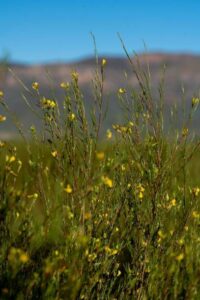Press release
Thanks to the support of partners Call2Care (iGardi) and Waste-ED, and project funding from Old Mutual Insure, False Bay TVET College is proud to announce the re-establishment of the on-campus waste to food programme at the Khayelitsha campus.
False Bay TVET College campuses are in some of the most economically vulnerable communities in Cape Town and, with the student population deeply affected by the increased levels of poverty and unemployment, decided the problems of hunger and food insecurity required an urgent response.
The first attempt at a campus food garden yielded two positive harvests but funding and infrastructure challenges emerged in trying to sustain and expand the project.
Now, thanks to the funding secured from Old Mutual Insure, the College is building a larger, more sustainable garden incorporating raised beds made from Eco bricks and cob, an irrigation system and training. The Eco bricks sponsored by Waste-Ed are plastic bottles stuffed with clean and dry non-recyclable materials. Waste-Ed also assisted with critical infrastructure: building the garden beds, assisting in implementing a waste management and composting system, workshops for the building and maintaining of the garden beds, and monitoring and evaluation of the waste management systems.
According to Old Mutual Insure: “The adoption of the project at False Bay TVET College will directly contribute to students’ overall well-being, improved nutrition, and health, which will result in higher programme completion, / retention rates and improved social and emotional behaviour.
Further benefits include teaching students and staff how to prepare and develop their own organic gardens, healthy living awareness, and economic sustainability by starting their own gardens to subsidise their income.
The Garden’s infrastructure is expected to be completed by the end of August in time to start planting in Spring.
Relevant Agribook pages include “Compost and organic fertiliser” and “Food security“.



